Refugee homes: survival instead of life
Categories: World
By Pictolic https://pictolic.com/article/refugee-homes-survival-instead-of-life.htmlAccording to the UN, today more than 65 million people have the status of forced migrants. These are people who have been left with no choice but to leave their father's house. Most of them have become refugees as a result of armed conflicts or natural disasters, but there are other reasons — for example, extreme poverty or a sharp deterioration of the climate.
By order of the International Organization for Migration, photojournalist Muse Mohammed visited third world countries and captured the conditions in which migrant families live.
(10 photos in total)
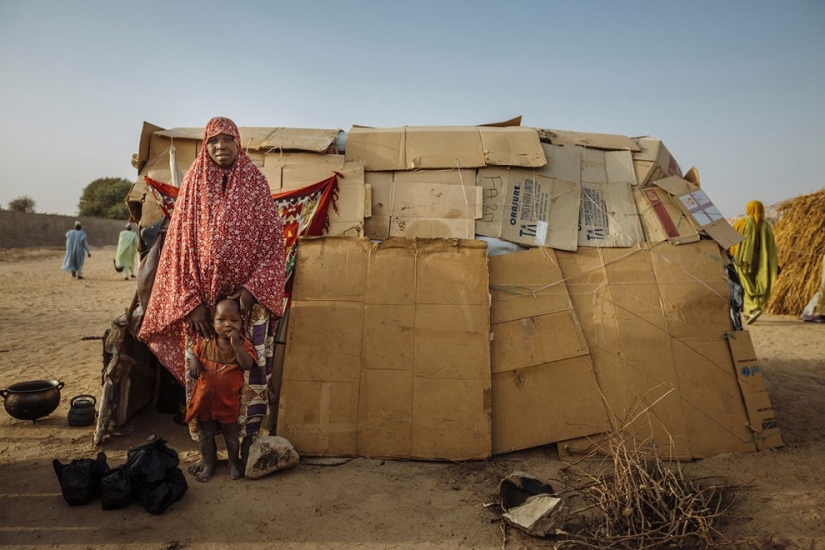
Source: Design You Trust
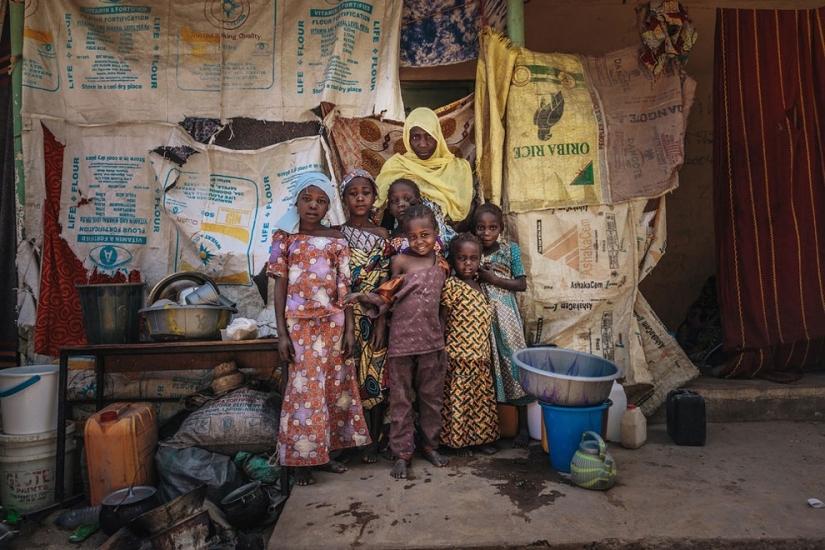
Atai and her six daughters live in a refugee camp in Maiduguri in northeastern Nigeria. Two years ago, their village was attacked by terrorists from Boko Haram, one of the most brutal groups of the Islamic State (a terrorist organization banned in Russia. — Ed.). They killed Atai's husband and took their eldest daughter into slavery. Now the family is huddled, if I may say so, in a house made of old bags.
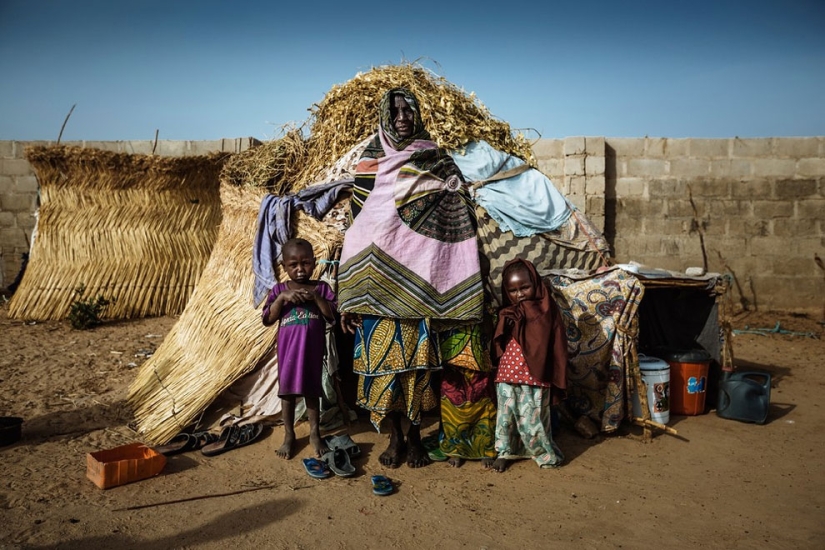
The same camp in Maiduguri. And the same story: cattle from Boko Haram ravaged the village and ruined the life of a large family. The parents of these babies died, their grandmother takes care of them.
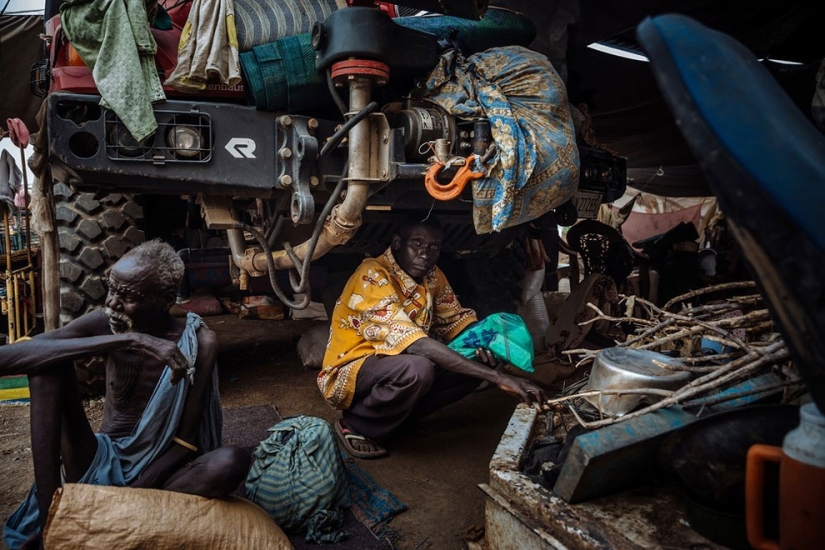
And this is South Sudan, the UN base in Malakal. In 2013, Angelo was forced to take his family away from his hometown when rivers of blood flowed through the streets due to a multi-sided ethnic conflict. For about two years they lived in a tent in relative peace, until national strife broke out with renewed vigor already inside the base. As a result, a third of the camp was consumed by fire, and now Angelo is sleeping under a truck.
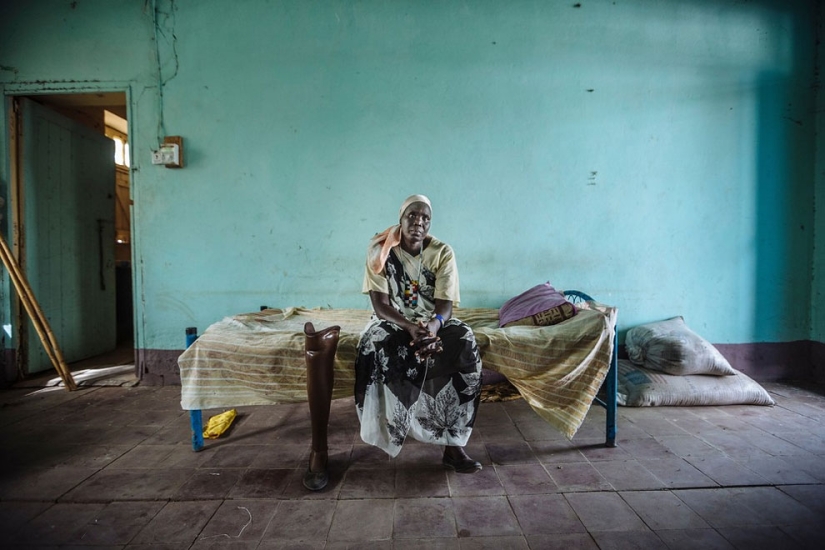
For a long time, Sarah, her husband and six children lived in Malakal. One day they had the opportunity to leave for the capital of South Sudan — Juba. The flight for refugees was organized by a local oil company, but to get on it, the family had to get to the remote town of Paloich. Sarah, who lost her leg in a car accident many years ago, would not have mastered the long journey. She convinced her family not to lose the opportunity to live a normal life, and she survives alone in the church shelter of Malakala.
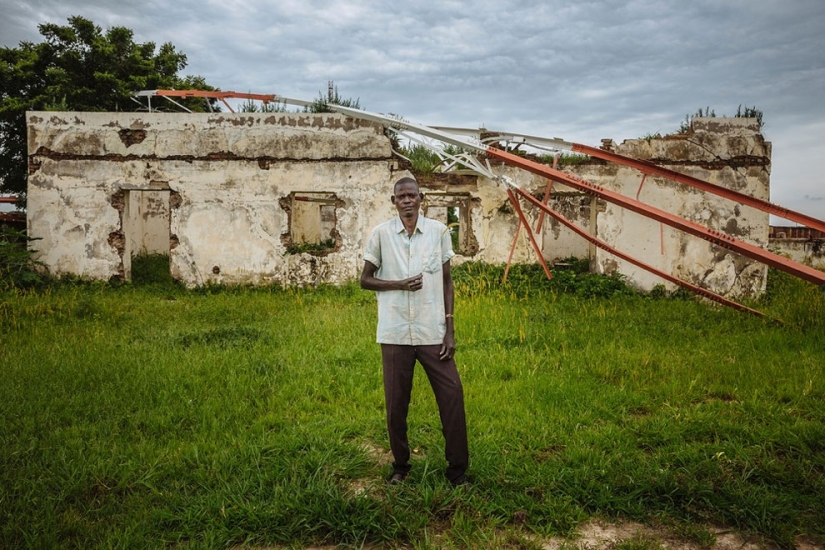
Peter was born and raised in the city of Abyei, which is now a disputed territory on the border of North and South Sudan. In 2011, fighting began here, and many houses turned into ruins. Residents were evacuated to Agok, but two years later Peter returned back and settled in a building destroyed by shells — not far from the place where a bullet interrupted his father's life.
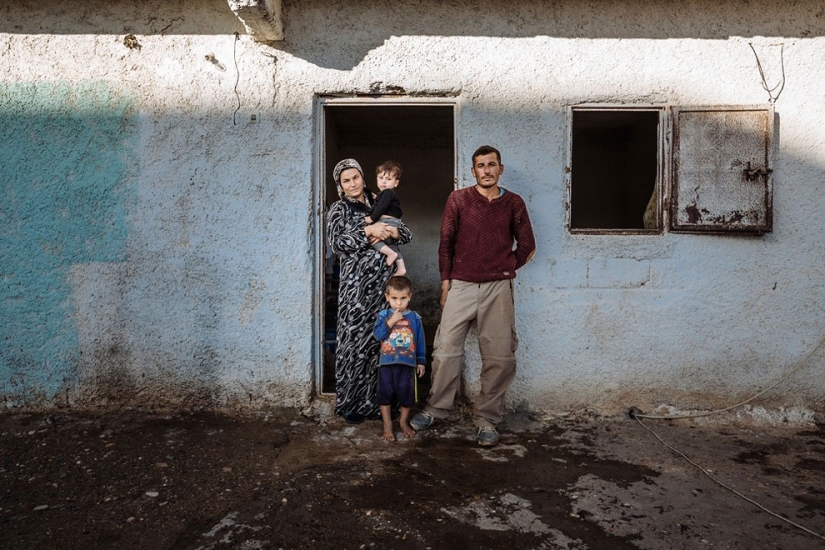
Mustafa's family left Aleppo as soon as the first bombs began to fall from the sky. Since then, they have been living without water, electricity and heating on the outskirts of the Turkish city of Sanliurfa, in a building where they used to keep horses. Each stall is crowded with one family.
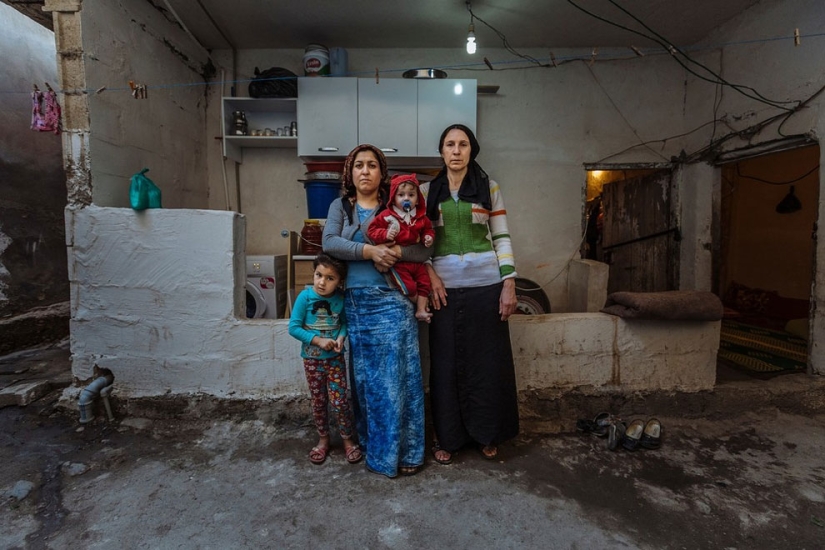
Syrians from Kobani who have at least some money live in such conditions. They pay $200 a month to rent this shack in Sanliurfa.
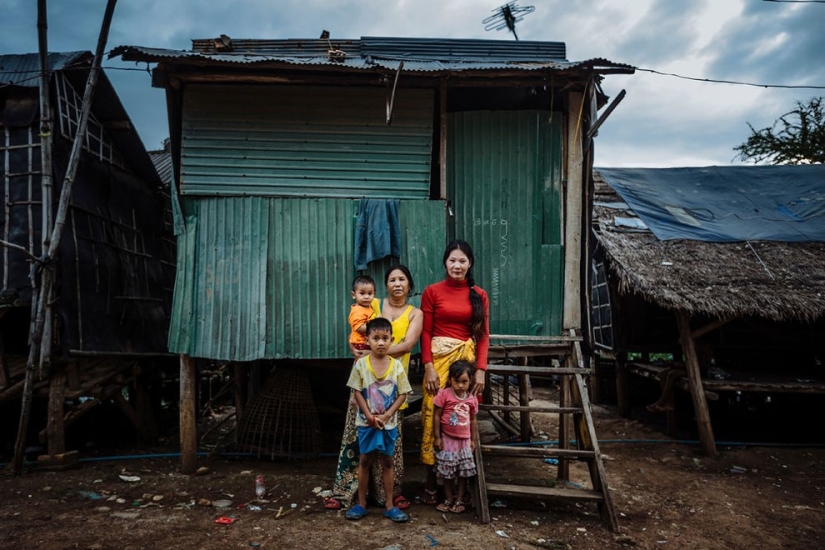
Cambodian Rumkun with her daughter and three grandchildren lives in a shack that her son built near an unfinished railway. A few years ago, the family decided to emigrate to Thailand, where salaries are many times higher, but the border guards only let their son through, and the women were stuck in the border Poipet. The money he sends out from time to time is barely enough. The authorities plan to finish the construction of the railway soon and demolish the entire self-construction.
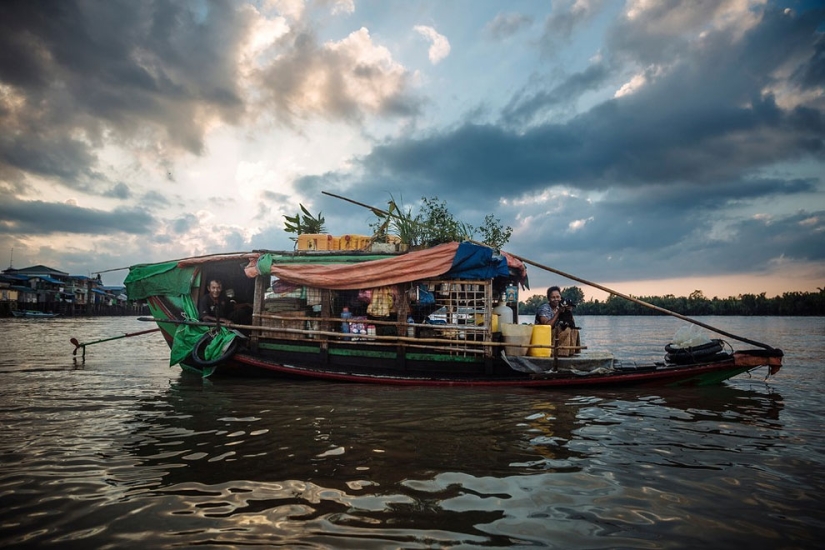
Tin and Naing have been boating on the Mekong and other rivers of Myanmar for eight years. In 2008, a powerful cyclone destroyed their village house and farm. There is no money for restoration, the spouses earn their living by trading fish.
Keywords: Refugees | Cambodia | Migrants | Nigeria | Syria | Turkey | South Sudan
Post News ArticleRecent articles

Appearances are deceiving, and seemingly harmless and sweet people can hide bloodthirsty monsters inside. Maniacs rarely look like ...

What is happiness? Money, love, success? But all these riches can be obtained thanks to just one variable, and its name is luck. ...
Related articles

The world community was shocked when in 2007 a dirty naked woman was found in the Cambodian jungle, who did not speak, could not ...

It is known that Jews have been living on the territory of Russia, Ukraine and Belarus since time immemorial. Surprisingly, the ...

Historians have studied archive documents for several centuries, I believe that in modern Moscow there are not more than 10% of ...

The economy seems like a complicated thing: graphs, percentages, forecasts - your head is spinning! But what if you look at it ...